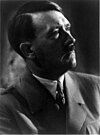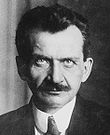March 1933 German federal election
| |||||||||||||||||||||||||||||||||||||||||||||||||||||||||||||||||||||||||||||||||||||
All seats in the Reichstag | |||||||||||||||||||||||||||||||||||||||||||||||||||||||||||||||||||||||||||||||||||||
|---|---|---|---|---|---|---|---|---|---|---|---|---|---|---|---|---|---|---|---|---|---|---|---|---|---|---|---|---|---|---|---|---|---|---|---|---|---|---|---|---|---|---|---|---|---|---|---|---|---|---|---|---|---|---|---|---|---|---|---|---|---|---|---|---|---|---|---|---|---|---|---|---|---|---|---|---|---|---|---|---|---|---|---|---|---|
| |||||||||||||||||||||||||||||||||||||||||||||||||||||||||||||||||||||||||||||||||||||
| |||||||||||||||||||||||||||||||||||||||||||||||||||||||||||||||||||||||||||||||||||||


The German federal election, March 1933 in the Weimar Republic was held on 5 March 1933. Thanks to the success of the Nazi Party and its allies in the poll, its leader and Chancellor of Germany, Adolf Hitler, was able to pass the Enabling Act, which effectively gave him the power of a dictator.
The election took place shortly after the Reichstag fire, in which the German parliament was set alight, allegedly by a Dutch Communist, Marinus van der Lubbe. This event had the joint effect of lowering the popularity of the Communist Party (KPD), and enabling Hitler to persuade President Paul von Hindenburg to pass the Reichstag Fire Decree. This emergency law removed many civil liberties and allowed the arrest of the leaders of the KPD shortly before the election, suppressing the Communist vote and consolidating the position of the Nazis. While at that time not as heavily oppressed as the Communists, the Social Democrats were also restricted in their actions, as the party's leadership had already fled to Prague and many members were acting only from the underground. Hence, the fire is widely believed to have had a major effect on the outcome of the election. As replacement, and for 10 years to come, the new parliament used the Kroll Opera house for its meetings.
To further assure the outcome of the vote would be a Nazi majority, Nazi organizations "monitored" the vote process. In Prussia, 50,000 members of SS, SA and Stahlhelm were ordered to monitor the votes as deputy sheriffs.
| Party | Vote percentage (change) | Seats (change) | ||
|---|---|---|---|---|
| National Socialist German Workers Party (NSDAP) | 43.9% | +10.8% | 288 | +92 |
| Social Democratic Party (SPD) | 18.3% | -2.1% | 120 | -1 |
| Communist Party (KPD) | 12.3% | -4.6% | 81 | -19 |
| Centre Party (Z) | 11.2% | -0.7% | 74 | +4 |
| German National People's Party (DNVP)[1] | 8.0% | -0.3% | 52 | +/-0 |
| Bavarian People's Party (BVP) | 2.7% | -0.4% | 18 | -2 |
| German People's Party (DVP) | 1.1% | -0.8% | 2 | -9 |
| Christian Social People's Service (CSVD) | 1.0% | -0.1% | 4 | -1 |
| German Democratic Party (DDP) | 0.9% | -0.1% | 5 | +3 |
| German Farmers' Party | 0.3% | -0.1% | 2 | -1 |
| Agricultural League | 0.2% | -0.1% | 1 | -1 |
| Other | 0.0% | -0.9% | 0 | +/-0 |
| Totals | 100.0% | 647 | +63 | |
- ^ actually as "Kampffront Schwarz-Weiß-Rot" ("Black-White-Red Combat Front"), a coalition with Stahlhelm and Landbund)
Aftermath
Despite achieving a much better result than in the November 1932 election, the Nazis did not do as well as Hitler had hoped, polling 43.9%, rather than the 50+% that he had expected. Therefore, he was forced to maintain his coalition with the Nationalist German National People's Party (DNVP) to control a majority. In addition to this, Hitler needed a two-thirds majority to pass the Enabling Act (a law which allowed him to pass laws without consulting the Reichstag), which he gained by persuading the Centre Party to vote with him. The bill was passed on 23 March. Only the Social Democrats opposed the measure, which came into effect on 27 March. Moreover, Social Democratic representation was suppressed, because some Social Democratic deputies that were elected to the Reichstag were prevented from taking their seats by the Nazi SA. Had the Communist Party participated, its representatives would have contributed 12% of the Reichstag votes. Instead, their representatives were under arrest for their suspect role in the Reichstag Fire. Though the Enabling Act was only meant to be effective for four years, it was formally prolonged twice. The powers gained from the bill allowed the KPD and Social Democratic Party (SPD) to be outlawed, and firmly established Germany as a dictatorship.
External links
- http://www.gonschior.de/weimar/Deutschland/RT8.html – Detailed Statistics Template:De icon
- http://www.dhm.de/lemo/html/nazi/innenpolitik/wahl33/index.html – German Historic Museum Template:De icon





